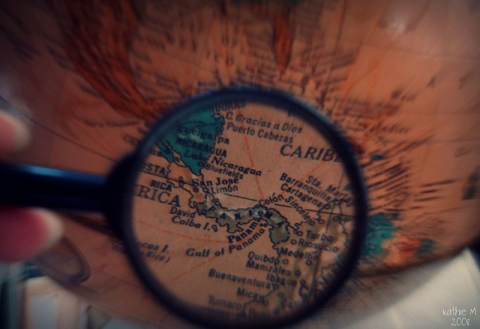
Africans named in leaked documents probed by ANCIR, Kenyan initiative fact-checks financial news and more from the Knight Fellows in this week’s roundup.
ANCIR plays key role in #PanamaPapers investigation
The African Network of Centers for Investigative Reporting (ANCIR) was part of a global consortium of media partners that produced the groundbreaking Panama Papers project that exposed the hidden financial dealings of high-level officials and executives around the world. More than 100 media partners collaborated on the yearlong project, analyzing a historic leak of 11.5 million files. ANCIR, an ICFJ partner, led the coordination of newsrooms in 11 African countries to produce a series of stories about the African people and companies named in the leaked materials. ANCIR was founded by ICFJ Knight Fellow Justin Arenstein, who serves as a director along with ICFJ Knight Fellow Chris Roper.
BBC Newsday interviewed ANCIR investigative editor Khadija Sharife about the leak. “We have to ask why they want to hide this, and what effect does this have on development and political economy of countries like South Africa and Ghana and the DRC, people who need the money for their health and waste sanitation and infrastructure,” she said.
New Kenyan initiative fact-checks budgetary and financial news
ICFJ Knight Fellow Catherine Gicheru and Code for Kenya, in partnership with the International Budget Partnership - Kenya, launched PesaCheck, the country’s first media-focused fact-checking service. The initiative will evaluate financial claims made by the media and public figures and then create infographics and data visualizations to explain the complex issues at play. In the project’s first fact check blog post, PesaCheck fellow Leo Mutuku evaluated claims about the amount of money needed to fund local governments in Kenya.
Chicas Poderosas founder strives for global empowerment of female journalists
Former ICFJ Knight Fellow Mariana Santos is profiled in The Tempest, a media company run by millennial women. Santos founded Chicas Poderosas, which is Spanish for “powerful women," during her ICFJ Knight Fellowship to bring more women into news technology and leadership. She told The Tempest, “We are giving voice to the underrepresented stories and women, and we’re helping women up the ladder of leadership, management and entrepreneurship.”
Census tool helps South African journalists reveal “forgotten” communities
An investigation by Code for South Africa’s Data Journalism Academy students found thousands of people living in 97 informal settlements in Cape Town, South Africa, that were not counted in the most recent census. The students reported the story of these “forgotten” people in an article published by IOL, a South African online news site. They used Wazimap, an updated version of Census Reporter developed by Code for South Africa, to visualize demographic data about a ward that includes one of the informal settlements.
What happened to one of Pakistan’s most powerful political parties?
The Express Tribune Labs team tries to answer this question in “Ground [Nine] Zero,” a five-part multimedia project on the fall of the once-dominant Muttahida Qaumi Movement. This project builds on the recent work of ICFJ Knight Fellow Shaheryar Popalzai to help journalists at The Express Tribune, one of Pakistan’s largest daily newspapers, get started with multimedia and data reporting, and create a CMS capable of publishing their longer-form, interactive stories.
Ground [Nine] Zero #MQM #Karachi https://t.co/MVIGJNHhE3 pic.twitter.com/oFsngbKvaB
— The Express Tribune (@etribune) April 7, 2016
Code for South Africa hacks for water
Code for South Africa hosted a hackathon as part of a nationwide #Hack4Water challenge to address South Africa’s growing water shortage crisis. According to a Code for South Africa blog post, participants worked on projects relating to four water issues: the cost of water, what will happen if South Africa runs out of water, where does my water come from and how to compare water usage over time and among neighbors. Each of the teams will submit a video about its project to the National Water Challenge, an initiative sponsored by the Department of Water and Sanitation and the Open Government Partnership South Africa.
What goes down @codebridge #hack4water @code4ct @Code4Africa pic.twitter.com/oyopT4gESp
— Code4SA (@code4sa) April 2, 2016
This post was also published on IJNet, which is produced by ICFJ.
Main image CC-licensed by Flickr via Kathie M Ceballos L.